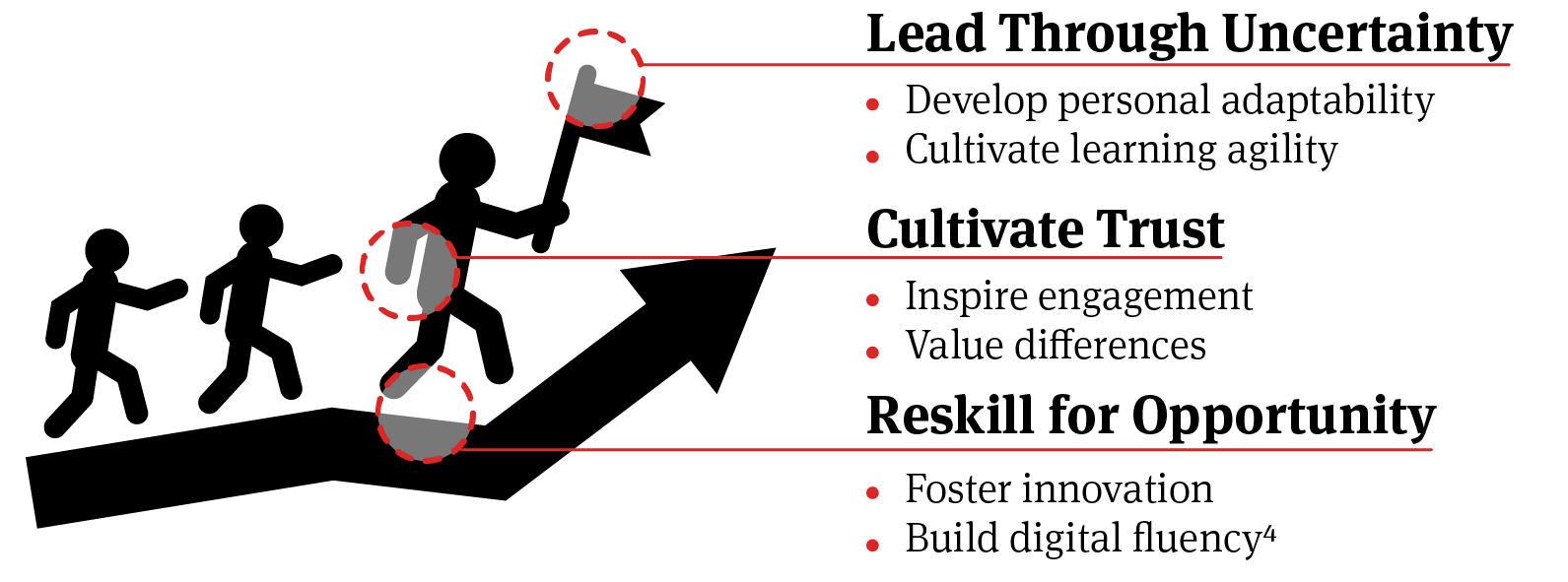In our previous article, we considered the challenges to your organisational culture that will result from changed employee expectations and from modernising your Employee Value Proposition (EVP).
We will now consider the challenges to your organisation’s leadership capability and style.
A modernised EVP (particularly if you introduce Gartner’s ‘Human Deal’1 aspects) and other enhancements to your organisational culture and purpose will challenge the capability and style of your leadership team.
Employees now believe that there is no “substitute for leaders who truly care about them and who work to make their lives better. Workers want transparency. They want to be trusted.”2
A recent study3 found that knowledge workers:
- Overwhelmingly expect flexible options;
- Want to reimagine how productivity is measured; and
- Desire to work with a diverse team.
It’s not surprising that leadership capability gaps have emerged in response to the challenges of the new global work environment. To “move forward out of the pandemic” your leadership team needs to:

Changed employee expectations and leadership capability gaps are important challenges for your organisation.
These challenges represent a “seismic shift to the way the employee/employer power dynamic has operated for generations” and this “is going to be tough for traditional leaders.”5
Traditional leaders, or the “generation of leaders in the last gasp” of managing activities at work, must shift focus to instead managing “impact, outcomes and results.”6
McKinsey suggests6 that “leaders might want to reconsider the actual nature of their relationship” with their employees:
- “They’re not servants;
- They’re not there to do your whim;
- They’re there because they have a purpose; and
- They have an identity.”
A good summary7 of “the top three skills that will be required of leaders during and after” the pandemic is that leaders must:
- Build strong and cohesive teams, even with employees working remotely.
- Navigate and manage change quickly and appropriately while remaining focused on the larger task at hand.
- Remain culturally sensitive and emotionally aware within fast-moving, complex work environments.
To successfully meet the challenges of the new global work environment, leaders must also have great communication skills, combined with the ability to consistently demonstrate compassion and empathy.
A successful leader needs the skills to:
- “Motivate, engage, and manage their employees;
- Give honest feedback;
- Have difficult conversations; and
- Provide support when employees need it.”8
Top performing organisations “foster a culture of perpetual learning that rewards continual skills growth,”9 and as part of perpetual learning “leadership training is always a good investment, as more effective leaders create more effective teams and employees. Good leadership has a trickledown effect, just as poor leadership does.”8
In summary, reimagining leadership in your organisation in the new global work environment means that your leadership team needs to be:
- Developed to add the necessary skills and abilities outlined above, and
- Tasked to deliver, and measured (and recognised) for success.
One important current leadership challenge, ‘work from anywhere’, will be discussed in our next paper.
Norton Rose Fulbright assists organisations to efficiently and effectively address the legal aspects of the reimagination of their leadership in the new global work environment. Please reach out if we can assist your organisation in this respect.













